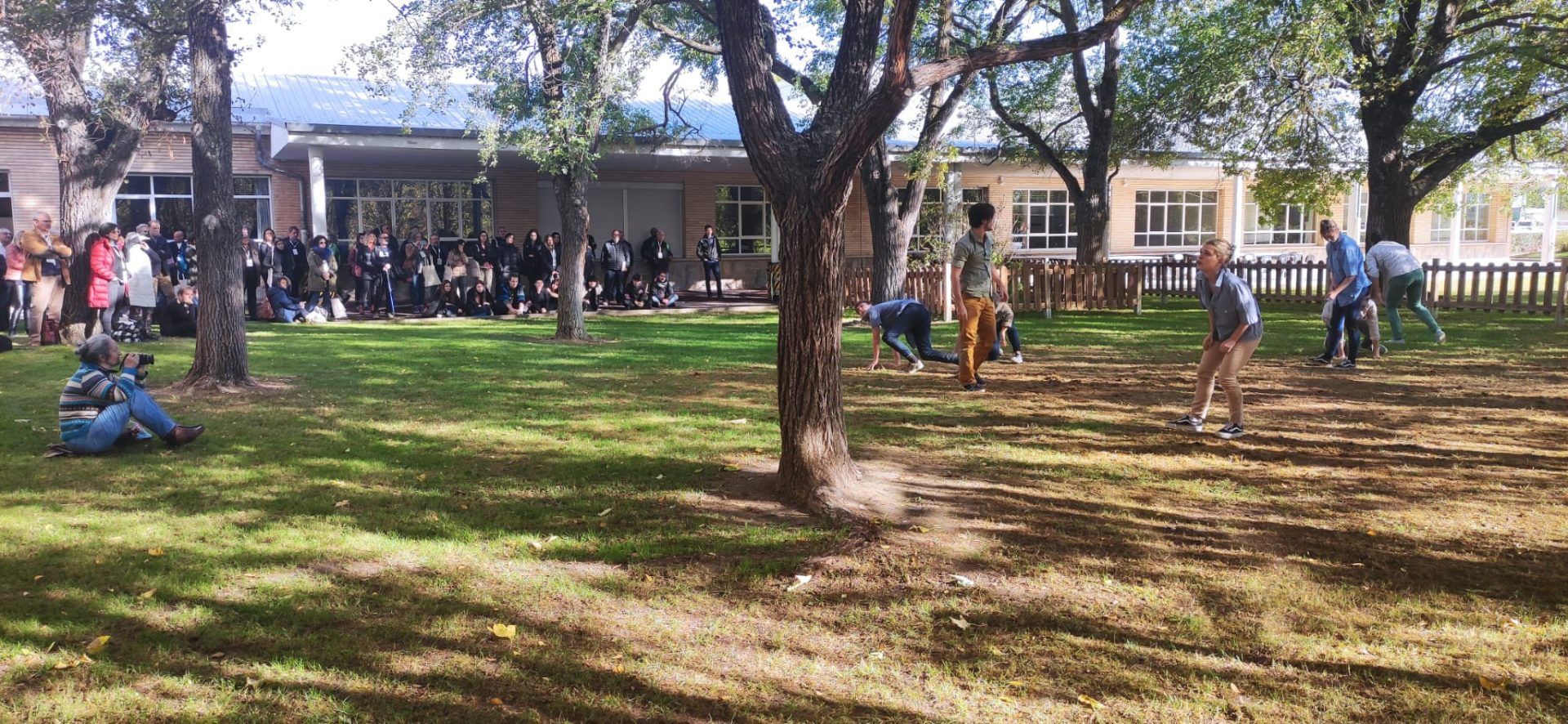In November 2022, the I International Congress History with Memory in Education was held in Pamplona/Iruña. The event was driven by a dual conviction: the necessity to ensure the transmission of the democratic memory of our recent traumatic past—the Second Republic, the Civil War, Francoism, and the democratic transition—to younger generations within the educational sphere. Simultaneously, it aimed to address the numerous didactic interventions on memory by educators and educational institutions, interventions that were not widely known and lacked spaces for horizontal coordination and debate.
The success of the congress and the establishment of an agenda for further development have led to the call for a second congress. This follow-up event seeks to analyze the progress made since then, such as the emergence of initiatives like RedMemoria—a network of educational centers and teachers for memory. It also aims to explore new (and not so new) debates, approaching themes and sectors that may not have received sufficient attention in the past.
History with Memory in Education signifies a deliberate intent to educate against the barbarity of contemporary violence, where archaic, savage, and ancestral violence combines with the modern violence of total, technological, and extremely lethal warfare. The collective memory of the ruins of the past (memory) and the analytical tools for its comprehension (history) intersect in the educational field with an ethical and civic mandate to envision futures that refuse to succumb to the desolation reminiscent of a past that never truly fades away.
Thus, the path forward involves an education that problematizes the present to build a critical, dissident, and rebellious citizenship against inequality and exclusion. This education advocates for a history from below, with new narratives that integrate historically silenced subjects, emphasizing gender equality, and advocating for the recognition and guarantee of basic rights for all citizens.
Within this framework, promoting educational projects that utilize historical, cultural, and artistic sources and resources to delve into everyday life and the construction of history from the grassroots is essential. Utilizing oral sources, constructing them through student participation, and accessing digital archives containing valuable testimonies about traumatic pasts and resistance to dictatorships are integral components of this approach.
Educational efforts should also engage with places of memory, recognizing them as spaces with significant didactic potential. Sharing experiences that interact with these places and reflecting on their theoretical frameworks, as well as understanding the dynamic and changing nature of their meanings over time, are crucial aspects. Promoting collaborative projects between educational institutions, whether locally connected or geographically distant but united by similar memories, is also emphasized.
Local history and microhistory play a privileged role in educational initiatives, serving as fundamental tools for historical knowledge construction. Exploring local memories allows for a bottom-up understanding of significant historical processes, offering a nuanced comprehension of the complexity of the past.
Special attention is given to sectors such as early and primary education, non-formal education, adult education, and teacher training. Associations dedicated to preserving historical memory are also encouraged to participate, recognizing their valuable contributions to the educational realm.
Therefore, the II International Congress History with Memory in Education is announced, scheduled to take place in Pamplona/Iruña from November 14 to 16, 2024. The proposed thematic lines and areas for dialogue and debate include:
- Traumatic Pasts That Persist: Histories of Violence and Revisionism
- Memory, School, and Society: Students and Educators of the 21st Century
- Class, Gender, and Ethnicity: Subaltern Memories and Education
- Sources and Heritage: Utilizing Resources for a Critical Memory Education
The organizers invite submissions, both theoretical reflections and practical experiences, until February 29, 2024. Proposals should include name, educational institution (or other affiliation), place of origin, a summary (150-200 words), and the thematic line it corresponds to, and should be sent to [email protected].
Organization
- Navarre Institute of Memory. Directorate General of Memory and Coexistence. Department of Memory and Coexistence, Outdoor and Basque Action. Government of Navarre.
- Organization, Training and Quality Service. Inclusion, Equality and Coexistence Service. General Directorate of Education. Education Department. Government of Navarre.
Collaboration
- FEDICARIA
- FDMHN Documentary Fund of Historical Memory in Navarre. Public University of Navarra
- GIGEFRA Civil War Research Group and Francoism. Complutense University of Madrid
- GREDICS Research Group on Science Teaching Socials. Autonomous University of Barcelona
- HISTAGRA Agrarian and Political History Group Rural World. University of Santiago de Compostela
- Chair of Intangible Heritage. Public University of Navarra
- Learn Ikasi Chair Caja Navarra Foundation. Public University of Navarra
- IGU Gerónimo de Uztáriz Institute. Navarre
- Pedagogical Committee of the ACEPF, Catalan Association of former political prisiones of Francoism
- EUROM European Observatory on Memories. University of Batrcelona Solidarity Foundation
- RedPROMEDEX Network of Professors for the Democratic Memory of Extremadura


